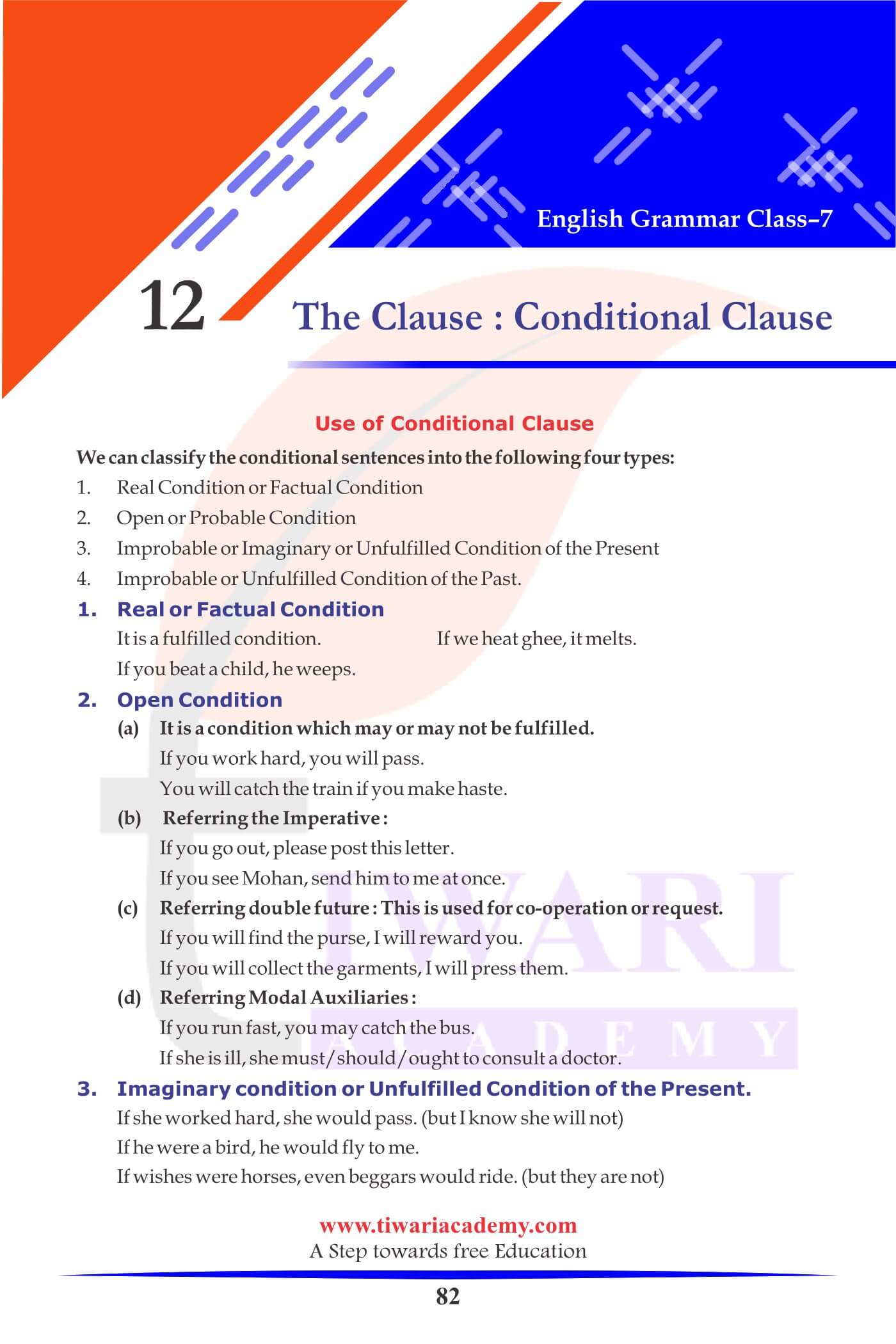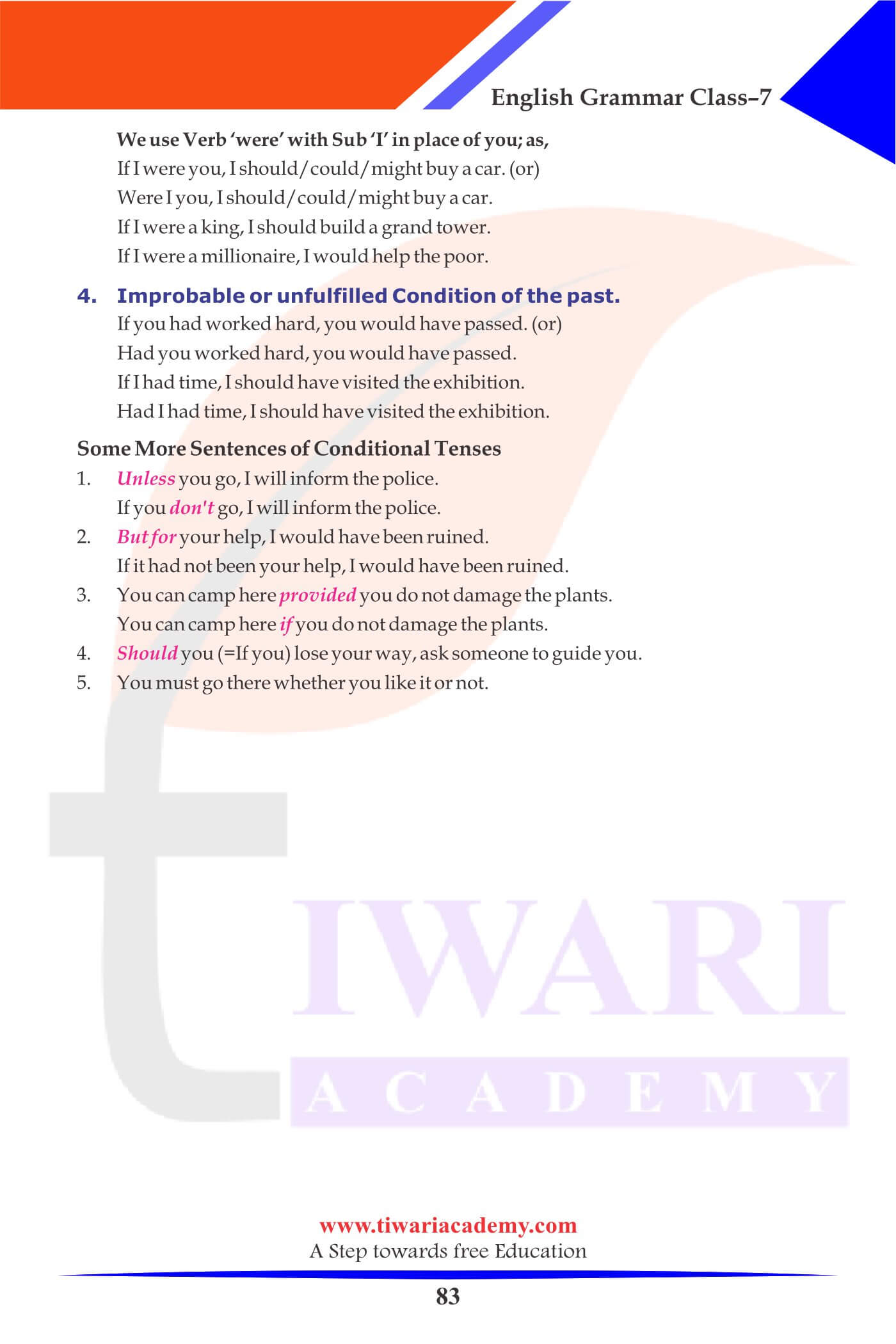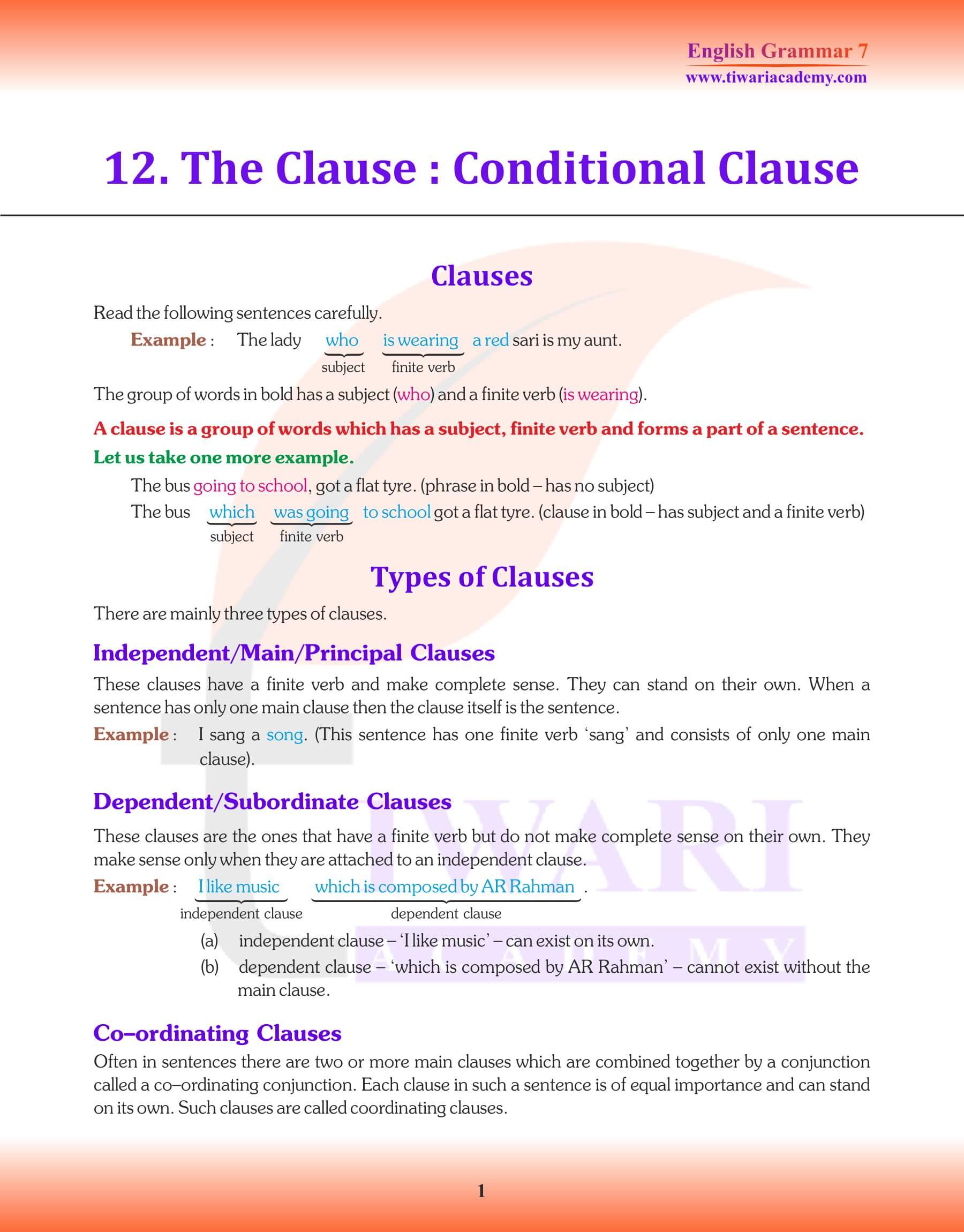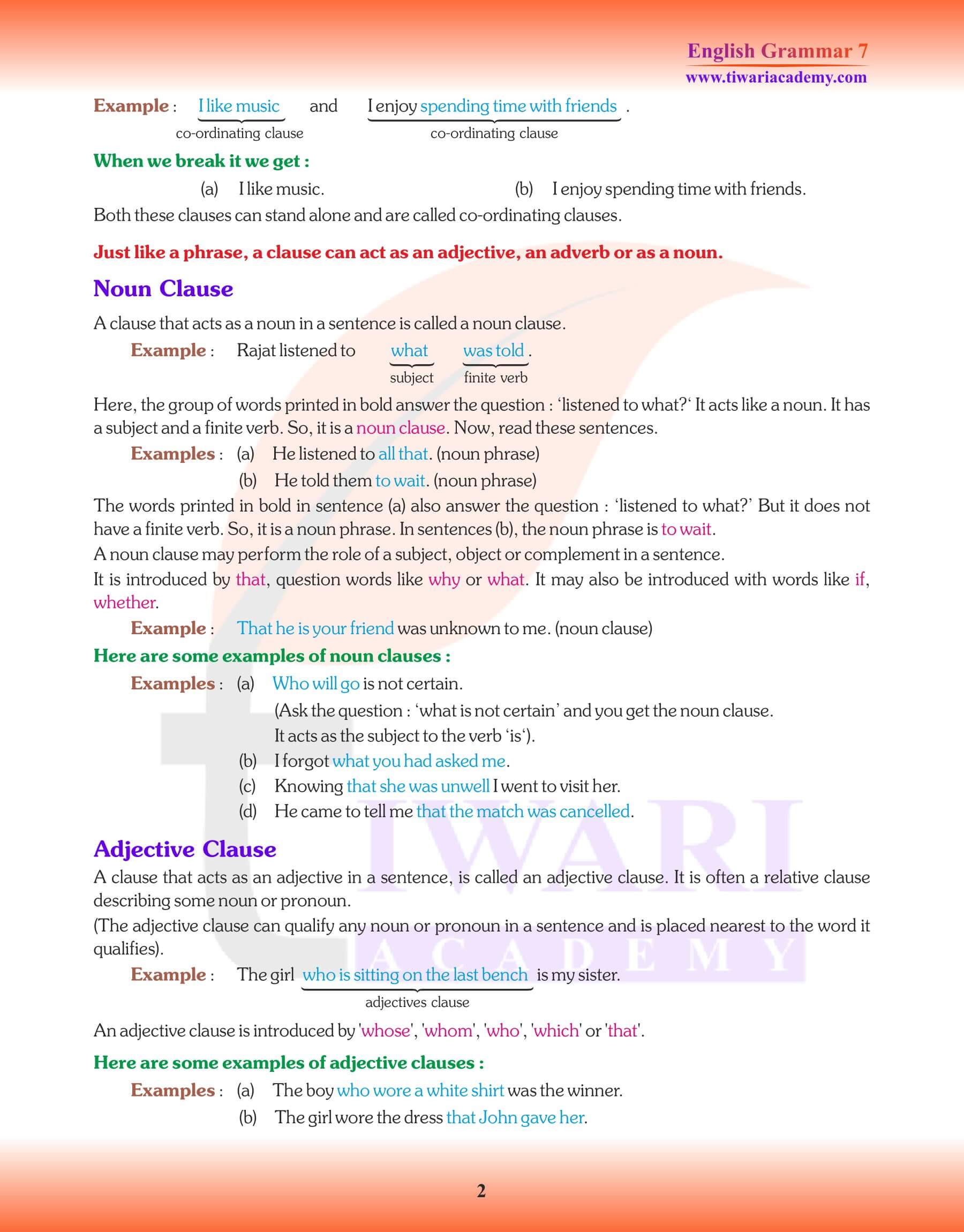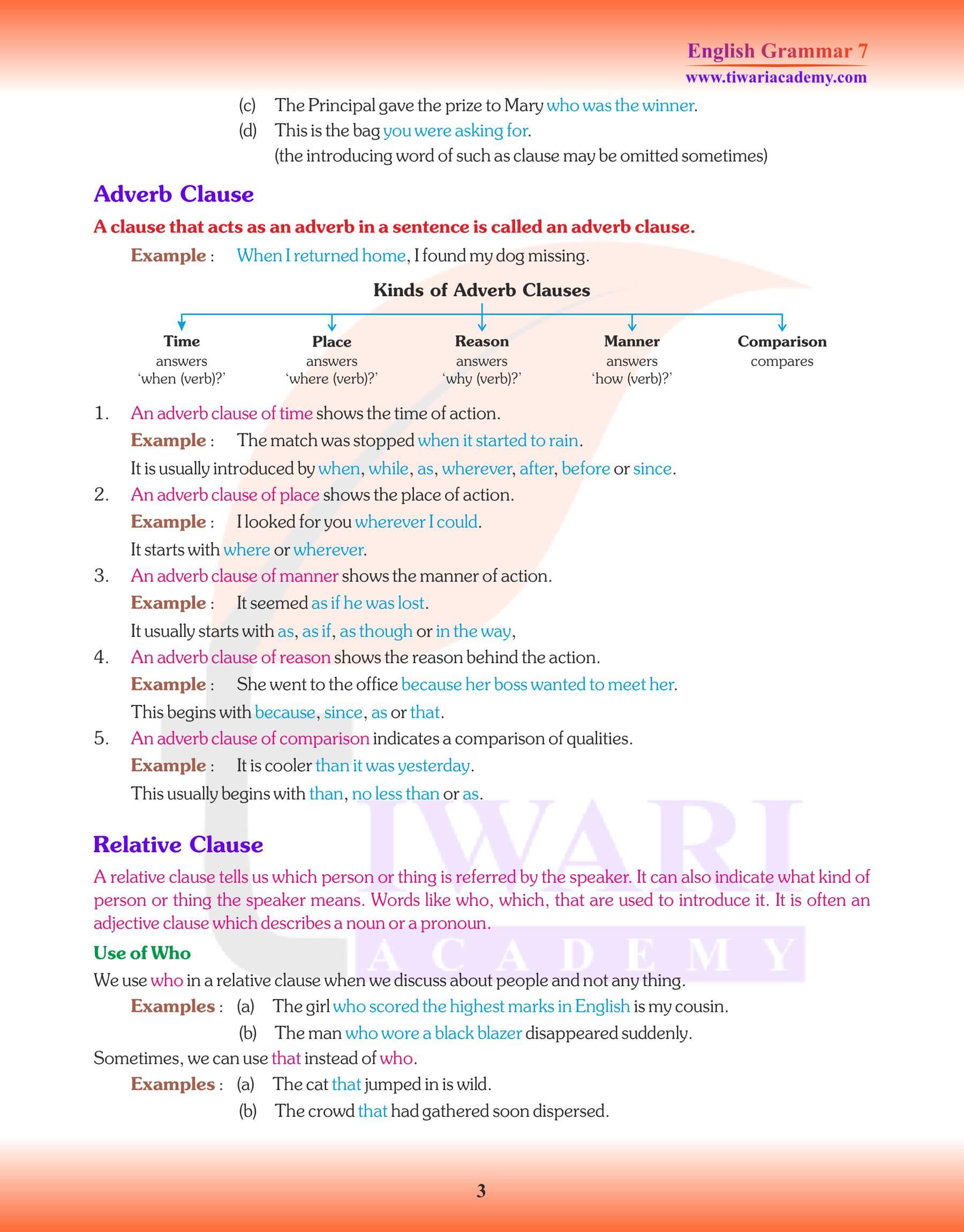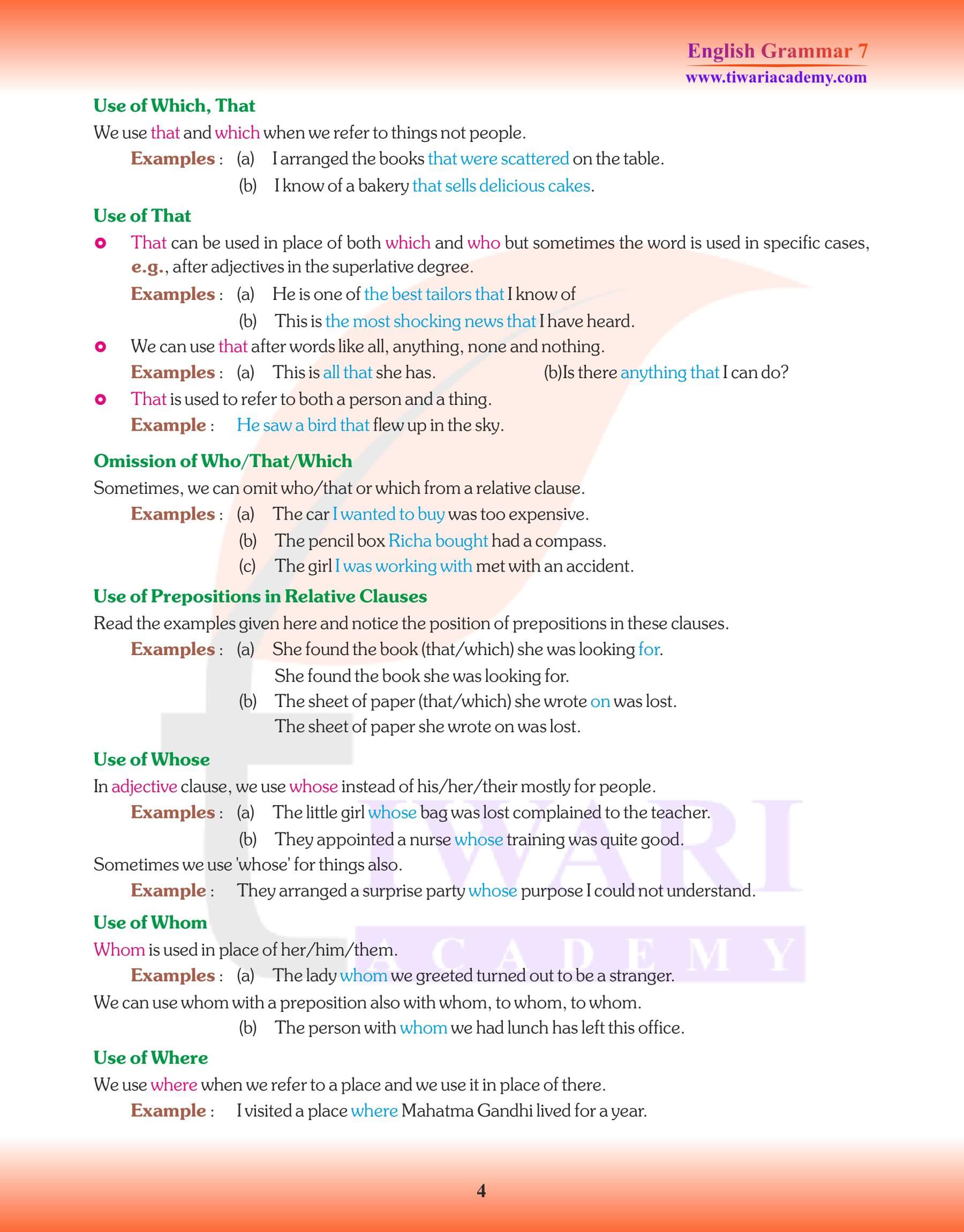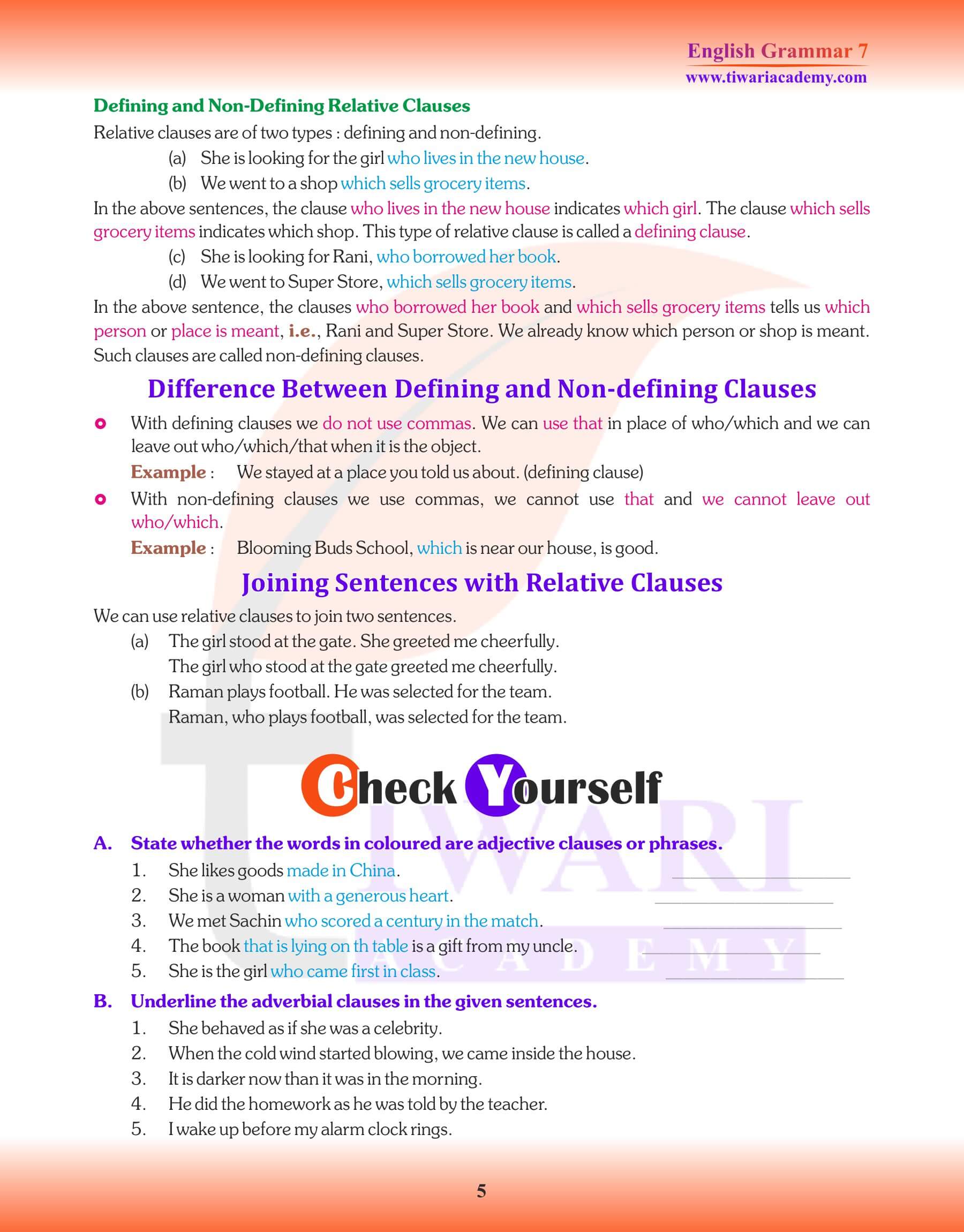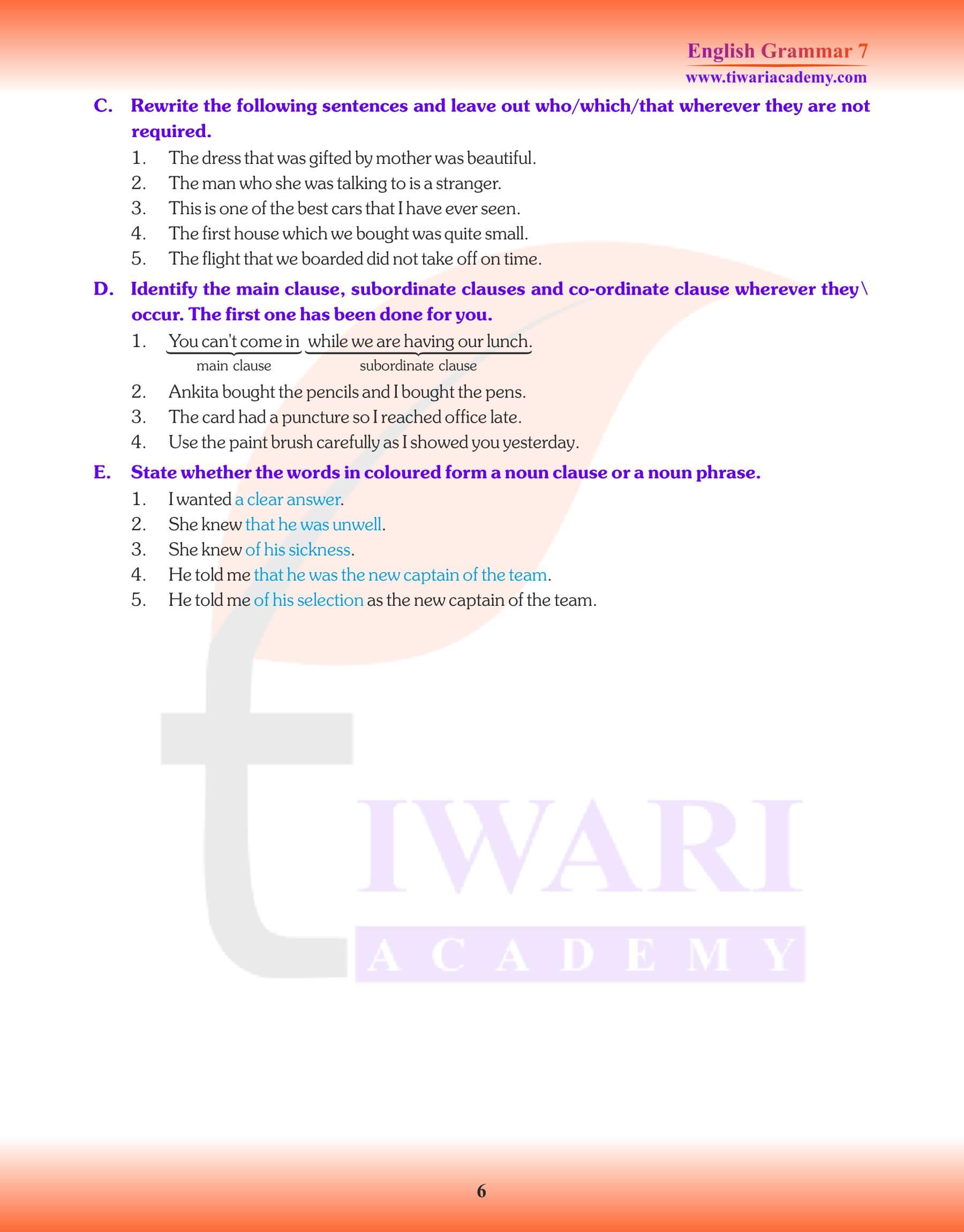Class 7 English Grammar Chapter 12 The Clause Conditional Clause. We can classify the conditional sentences into four types, Real Condition or Factual Condition, Open or Probable Condition, Improbable or Imaginary or Unfulfilled Condition of the Present and Improbable or Unfulfilled Condition of the Past. Example and explanation of all four types of clause are given here to practice for academic session 2024-25.
Class 7 English Grammar Chapter 12 The Conditional Clause
The intricate world of English grammar presents conditional clauses as an intriguing area of study. Covered comprehensively in Chapter 12 of Class 7 English Grammar, conditional clauses play a pivotal role in shaping the meaning and context of sentences. Essentially, these clauses highlight the conditions under which a particular action might take place. To simplify understanding, conditional sentences are categorized into four distinct types: Real Condition, Open Condition, Improbable Condition of the Present, and Improbable Condition of the Past.
| Class: 7 | English Grammar |
| Chapter: 12 | The Clause or Conditional Clause |
| Contents: | Textbook and Study Notes |
| Academic Year: | 2024-25 |
Use of Conditional Clause
We can classify the conditional sentences into the following four types:
It is a condition which may or may not be fulfilled.
If you work hard, you will pass.
You will catch the train if you make haste.
Each type of conditional clause brings with it unique characteristics and usage patterns. This chapter provides learners with detailed examples and thorough explanations of all four types, equipping them with the knowledge to use them proficiently. As students prepare for the academic session of 2024-25, mastering these conditional clauses becomes imperative for achieving excellence in English grammar and communication.
(b) Referring the Imperative:
If you go out, please post this letter.
If you see Mohan, send him to me at once.
(c) Referring double future: This is used for co-operation or request.
If you will find the purse, I will reward you.
If you will collect the garments, I will press them.
Referring Modal Auxiliaries
If you run fast, you may catch the bus.
- Real Condition or Factual Condition
- Open or Probable Condition
- Improbable or Imaginary or Unfulfilled Condition of the Present
- Improbable or Unfulfilled Condition of the Past.
Real or Factual Condition
If you beat a child, he weeps.
If we heat ghee, it melts.
Open Condition
(a) It is a condition which may or may not be fulfilled.
If you work hard, you will pass.
You will catch the train if you make haste.
(b) Referring the Imperative:
If you go out, please post this letter.
If you see Mohan, send him to me at once.
(c) Referring double future: This is used for co-operation or request.
If you will find the purse, I will reward you.
If you will collect the garments, I will press them.
(d) Referring Modal Auxiliaries:
If you run fast, you may catch the bus.
If she is ill, she must/should/ought to consult a doctor.
Imaginary condition
If she worked hard, she would pass.
If he were a bird, he would fly to me.
If wishes were horses, even beggars would ride. (but they are not)
We use Verb ‘were’ with Sub ‘I’ in place of you as,
If I were a king, I should build a grand tower.
If I were a millionaire, I would help the poor.
Improbable or unfulfilled Condition
Had you worked hard, you would have passed.
If I had time, I should have visited the exhibition.
Some More Sentences of Conditional Tenses
Unless you go, I will inform the police.
You must go there whether you like it or not.
You can camp here provided you do not damage the plants.
